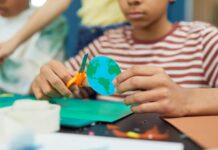
What are the Six Aspects of Personal Development?
Personal development is a journey of self-improvement aimed at enhancing various aspects of one’s life. It involves conscious efforts to grow, evolve, and become the best version of oneself. In today’s fast-paced world, personal development has become more crucial than ever, offering individuals the tools to navigate challenges, achieve success, and lead fulfilling lives.
Introduction
Personal development encompasses activities that improve awareness, identity, talents, potential, and quality of life. It is a continuous process that empowers individuals to reach their full potential, both personally and professionally. By focusing on self-improvement, individuals can enhance their strengths, overcome weaknesses, and cultivate a more meaningful existence.
Setting Goals
One of the fundamental aspects of personal development is setting goals. Goals provide direction, motivation, and a sense of purpose. However, it’s essential to set SMART goals—Specific, Measurable, Achievable, Relevant, and Time-bound. SMART goals help individuals clarify their objectives and create actionable plans to achieve them.
Self-Awareness
Self-awareness is another crucial element of personal development. It involves understanding one’s thoughts, emotions, and behaviors, as well as recognizing strengths and weaknesses. Techniques such as mindfulness, journaling, and self-reflection can enhance self-awareness, enabling individuals to make informed decisions and align their actions with their values.
Continuous Learning
Personal development thrives on continuous learning. Embracing a lifelong learning mindset allows individuals to acquire new skills, knowledge, and experiences. Whether through formal education, self-study, or experiential learning, ongoing education expands perspectives, fosters creativity, and promotes personal growth.
Building Resilience
In the face of challenges and adversity, building resilience is essential for personal development. Resilience enables individuals to bounce back from setbacks, adapt to change, and thrive in difficult circumstances. Strategies such as developing a support network, practicing optimism, and cultivating problem-solving skills can strengthen resilience.
Improving Relationships
Healthy relationships play a pivotal role in personal development. Improving relationships involves effective communication, empathy, and conflict resolution skills. By nurturing meaningful connections with others, individuals can experience greater fulfillment, support, and personal growth.
Enhancing Health and Well-being
Physical, mental, and emotional well-being are integral components of personal development. Enhancing health and well-being encompasses practices such as regular exercise, nutritious eating, stress management, and self-care. Prioritizing health enables individuals to sustain energy levels, manage stress, and optimize performance in all areas of life.
Conclusion
In conclusion, personal development encompasses various aspects aimed at fostering growth, fulfillment, and success. By setting goals, enhancing self-awareness, embracing continuous learning, building resilience, improving relationships, and prioritizing health, individuals can embark on a transformative journey of self-discovery and improvement. Through consistent effort and dedication, anyone can unleash their full potential and lead a more purposeful and rewarding life.
Key Elements of Personal Development
What Are the Three Types of Personal Growth?
What Are the Four Types of Self-Development?
FAQs
- How long does it take to see results from personal development efforts?
- The timeline for seeing results from personal development efforts varies depending on individual goals, commitment, and consistency. While some changes may be immediate, others may require more time and effort.
- Can anyone engage in personal development?
- Yes, personal development is accessible to anyone willing to invest time and effort in self-improvement. Regardless of background or circumstances, everyone has the potential to grow and evolve.
- What role does mindset play in personal development?
- Mindset plays a significant role in personal development as it influences beliefs, attitudes, and behaviors. Adopting a growth mindset, characterized by resilience and a willingness to learn, can propel individuals toward success.
- Are there specific tools or resources for personal development?
- Yes, there are numerous tools and resources available for personal development, including books, courses, workshops, coaching, and online platforms. It’s essential to find resources that resonate with individual needs and preferences.
- How can someone stay motivated during their personal development journey?
- Staying motivated during a personal development journey involves setting meaningful goals, celebrating progress, seeking support from others, and maintaining a positive outlook. Regular self-reflection and reminding oneself of the benefits of personal growth can also help sustain motivation.






















